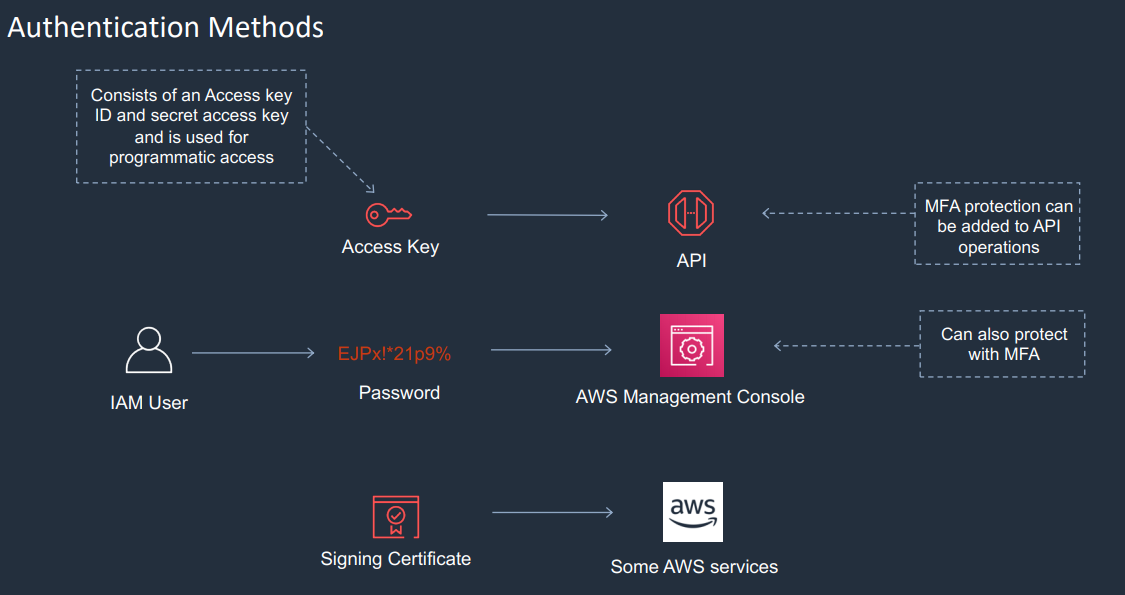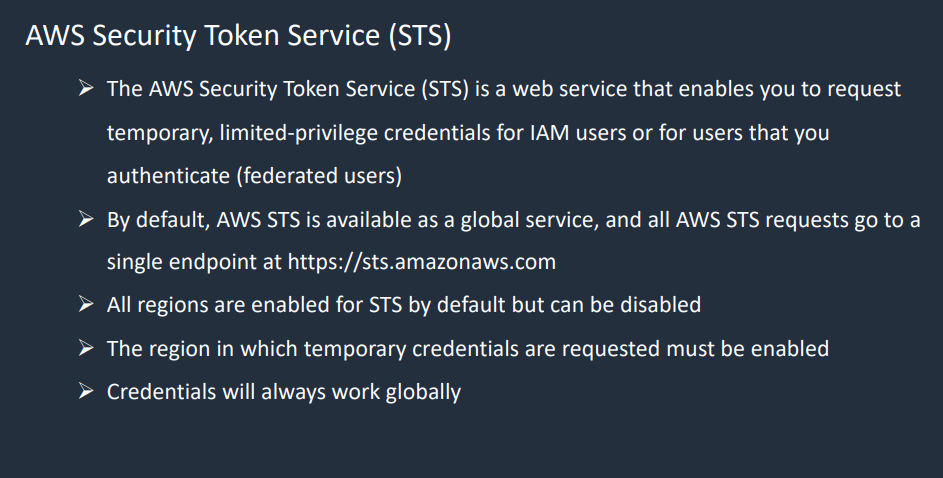
IAM is account for person or service. Can apply an IAM policy. IAM Group: collections of users. Attach policies. Role: Roles are assumed by trusted entities. Policies can be applied to Roles.
IAM users can be assigned access keys. Root users is the main account - full admin permissions, can't be restricted. So best practice is not to use this. Better to create an IAM user.
IAM accounts can be for service. IAM accounts have a name and a Amazon resource name (ARN)
Groups: can't nest
e.g. role to access S3, or Lambda. Assign this role to e.g. a service Delegate permissions to use services. DOnt need to give permanent credentials.
Written in JSON E.g. S3 Full access, DynamoDB read-only. IAM policy simulator is good to test / understand. Also have condition element.

Access keys and secret access keys need to be stored securely. Can disable keys. Signing certificate is SSL / TLS cert to authenticate with some services.
Something you know (password) Something you have (Dongle) Something about you (biometrics)
Security token service (STS)

Limited time credentials for IAM users
set alias for console login: https://jezza64.signin.aws.amazon.com/console Set up billing alarm as root user set up IAM account for user, in a group. Set password privileges.
To install:
sudo amazon-linux-extras install epel -y sudo yum install stress -y To see options: stress --help To generate CPU: stress -c 8
.pem file saved ssh -i "key.pem" ec2-user@{the public DNS or IP} Doesn't allow you to use the .pem file unless chmod 400. Use putty: convert .pem to .ppk AWS puts your public key on the EC2 instance. Your private key needs to be provided in the cli request to match the public key.
Update op system:
sudo yum update
dig is utility to query DNS e.g. dig simple.jeremybates.uk returns configured IP address
user data
#!/bin/bash
yum update -y
yum install httpd -y
systemctl start httpd
systemctl enable httpd
cd /var/www/html
aws s3 cp s3://jer-saa-bucket/index.txt ./
EC2AZ=$(curl -s http://169.254.169.254/latest/meta-data/placement/availability-zone)
sed "s/INSTANCE/the EC2 instance in $EC2AZ/" index.txt > index.html
configure ssh agent forwarding:
ssh-add -l
use agent forwarding
ssh -A
>aws --version
curl "https://awscli.amazonaws.com/awscli-exe-linux-x86_64.zip" -o "awscliv2.zip"
unzip awscliv2.zip
sudo ./aws/install
Run configuration:
aws configure